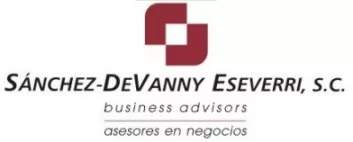On March 9, 2017, two relevant agreements were published in the Federal Official Gazette, communicating "Decision N° 8" and "Decision N° 9", both of them adopted by the Administrative Commission for the Free Trade Agreement between Mexico and Central America – Costa Rica, El Salvador, Guatemala, Honduras and Nicaragua – ("FTA") on January 24, 2017. These agreements entered into force March 10, 2017.
In this same vein, on March 10, 2017, the Resolution which establishes the General Rules applicable to provisions on customs matters for the FTA ("Resolution") and its Annex 1, was published in the Federal Official Gazette, entering into force on March 10, 2017, abrogating the Resolution and its Annex 1, published in the Federal Official Gazette on August 31, 2012.
As per "Decision N° 8", the publication's aim was to communicate amendments to the Specific Rules of Origin established in Annex 4.3 of the FTA and its Appendix, derived from the implementation of the Fifth Amendment to the Harmonized Commodity Description and Coding System ("HS"), realized by the Customs Cooperation Council of the World Customs Organization. It is important to highlight that all of the members of the FTA are contracting parties to the International Agreement of the HS, which establishes a common nomenclature aiming to expedite customs procedures and facilitate trade.
In this regard, publication of "Decision N° 8" is relevant because it adapts the Specific Rules of Origin, which establish the requirements and conditions to determine a good's origin, according to Chapter IV (Rules of Origin) of the FTA.
As per "Decision N° 9", the publication's aim was to communicate the adoption of the Uniform Regulations of the FTA, observing its Article 5.15, which sets forth that the Uniform Regulations establish the interpretation, application and administration of Chapters IV (Rules of Origin), V (Customs Procedures) or others.
We consider that both Rules of Origin and the Customs Procedures related to the Origin of Goods are relevant to companies with import and/or export operations with countries of the FTA. It is essential that producers and exporters that issue certificates of origin for goods to be exported verify that they can still be considered as originated according to Chapter IV, as well as the amendments to Annex 4.3.
Likewise, it is advisable to observe requirements set forth by the Uniform Regulations in connection to issuing certificates of origin, their content, forms, registries and documentation related to origin, and so on, thereby avoiding legal, commercial and customs contingencies.
Lastly, as per the "Resolution", the publication's aim was to communicate the Resolution that will be valid from March 10, 2017, and was amended in its content to incorporate adjustments in "Decision N° 9".
Publication of the Resolution is relevant to provide legal certainty to companies with import and/or export operations with those countries, regarding application of the FTA, while Annex 1 contains the approved forms and instructions on how to fill them out for the certificate of origin and the declaration of origin.
The content of this article is intended to provide a general guide to the subject matter. Specialist advice should be sought about your specific circumstances.

